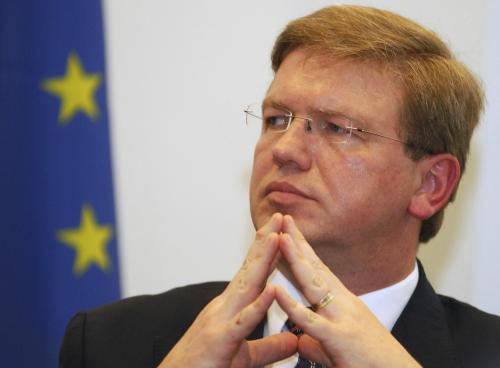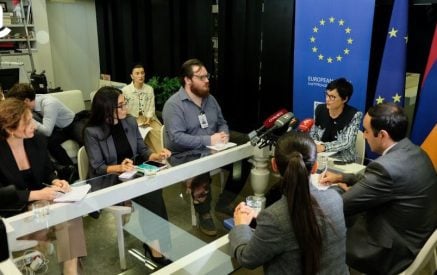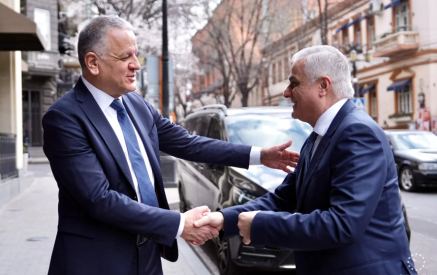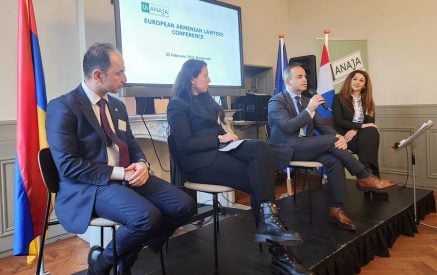Public meeting with students, civil society media and think tanks at Hotel Marriot, in Yerevan, Armenia
10 July 2013
I am delighted to have the opportunity to address you today. It is always a pleasure to visit Armenia, and to see the roots of a flourishing culture which has had such an impact across the globe.
At the beginning of the 21st century, the increasingly fast-paced globalisation brings new opportunities; opportunities that go well beyond countries simply seeking to survive, prosper, or furnish citizens with jobs and ensure that their basic needs are met. Globalisation reaches well beyond this: it creates conditions to unlock and fulfil the creative potential inherent to each of us individually, and aggregated in societies – civil and political.
Read also
To fulfil this unique potential we need a vision. And we need instruments – essentially a roadmap – to reach it. But in this increasingly interdependent world, even that may not be enough – what we all need are partners who share and understand our vision, and with whom we can agree on joint instruments, a joint roadmap. Partners who are predictable, reliable and have shared rules of the game.
I believe we are at a significant moment in European Union-Armenia relations. We are developing a partnership which is both wider and deeper than it has been up to now. We are very close to finalising our Association Agreement, including a Deep and Comprehensive Free Trade Area. I am confident that this will bring concrete benefits and new opportunities to all citizens.
In addition to offering an important trade partnership with the EU – a market with 500 million consumers, the Agreement addresses many concrete issues which affect everyday life. As a result, for example, consumer protection, both in terms of product safety and value for money, or road safety, or air quality are improved. What is more, it will also strengthen the links between the people of Armenia and the people of Europe.
For the European Union, partnerships are not only about economics, business and regulatory frameworks. If we are serious in implementing our commitments, as we should be, our political and trade relations will become much stronger: through the regulatory convergence of our partners with the European Union and the effective sharing of values. Human rights, democracy and fundamental freedoms will be so-called “essential elements” of our new Agreement, in other words the absolute core that both sides must respect and promote.
The Association Agreement, and the Deep and Comprehensive Free Trade Area which it includes, have taken a long time to negotiate. We have worked with our Armenian partners to define a set of reforms which will not only open up new opportunities in terms of market access, mobility and co-operation, but which will allow Armenia to exploit those opportunities with strengthened state institutions, labour market, and infrastructure.
One of the reasons I am so keen that we complete our negotiations is so that we can prepare the Agreement in its final form and share the contents with citizens – I do believe that it will open a new chapter not only in European Union-Armenia relations but also in Armenia’s own development.
And we are ready not only to provide financial support of our own, but to encourage other international donors to support reform projects. This can be a foundation for solid medium-term planning, focusing on a common set of goals and under government leadership.
European Commission























































